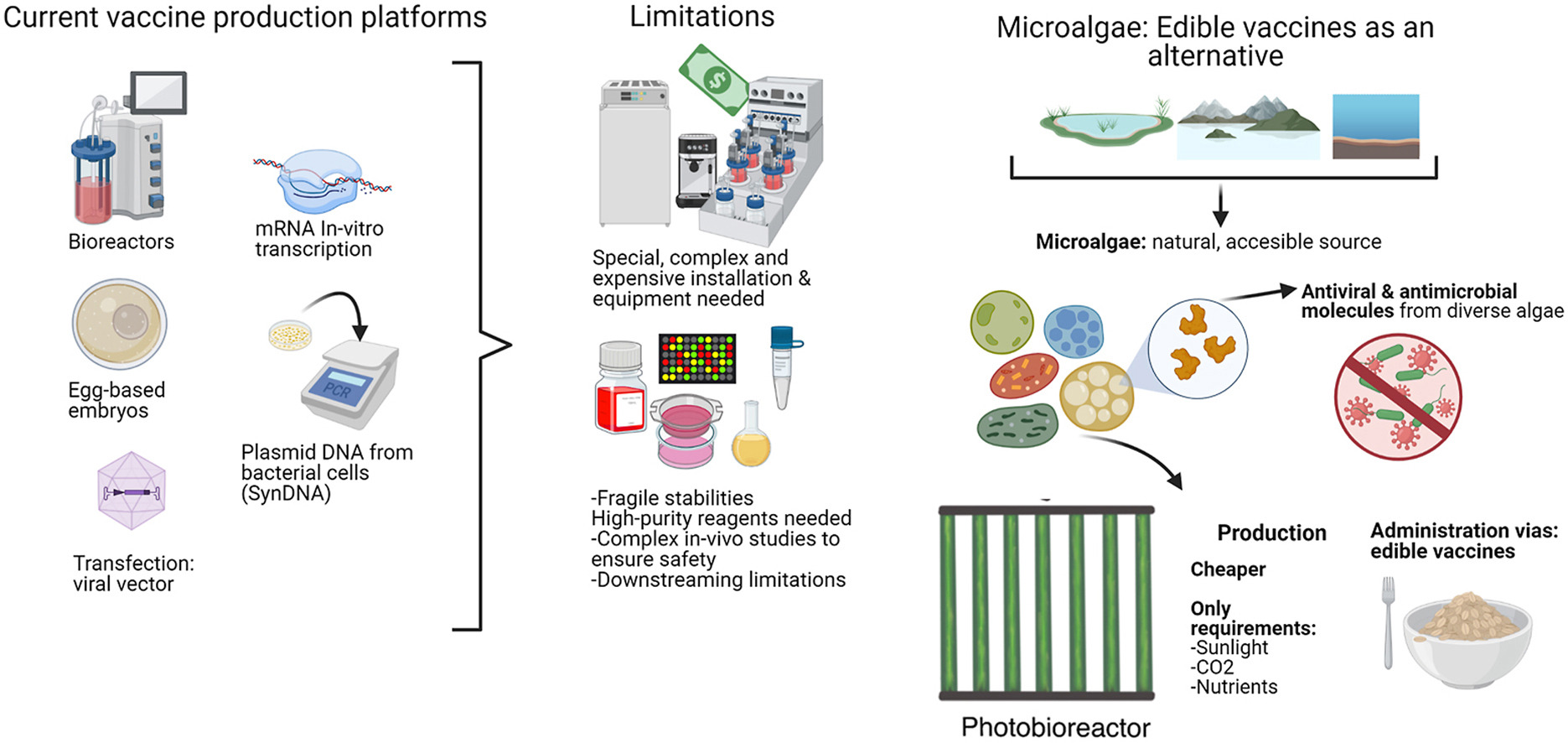Current challenges for modern vaccines and perspectives for novel treatment alternatives

With the on-going pandemic, vaccine developing methods have gained attention of the scientific community, specially towards the production, downstream and transport aspects, making it clear that new methods with less complex production and transport are needed, especially for developing countries. In this work we review the current methods used for vaccine production, downstream platforms, and distribution aspects along with the challenges faced by each of the approaches. Some studies have also been carried out proposing alternatives, the most attractive one being the concept of edible vaccines, which suppose a considerable expenditure cut for the production and distribution of vaccines, in this work we also review some of them, using mainly algae, yeast and bacteria. Algae, yeast and some bacteria have been granted the GRAS (Generally Recognized As Safe) state by the FDA and European food safety authority, making them ideal and safe as vaccine vectors and biofactories at the same time.
https://doi.org/10.1016/j.jddst.2022.103222. (https://www.sciencedirect.com/science/article/pii/S1773224722001320)

